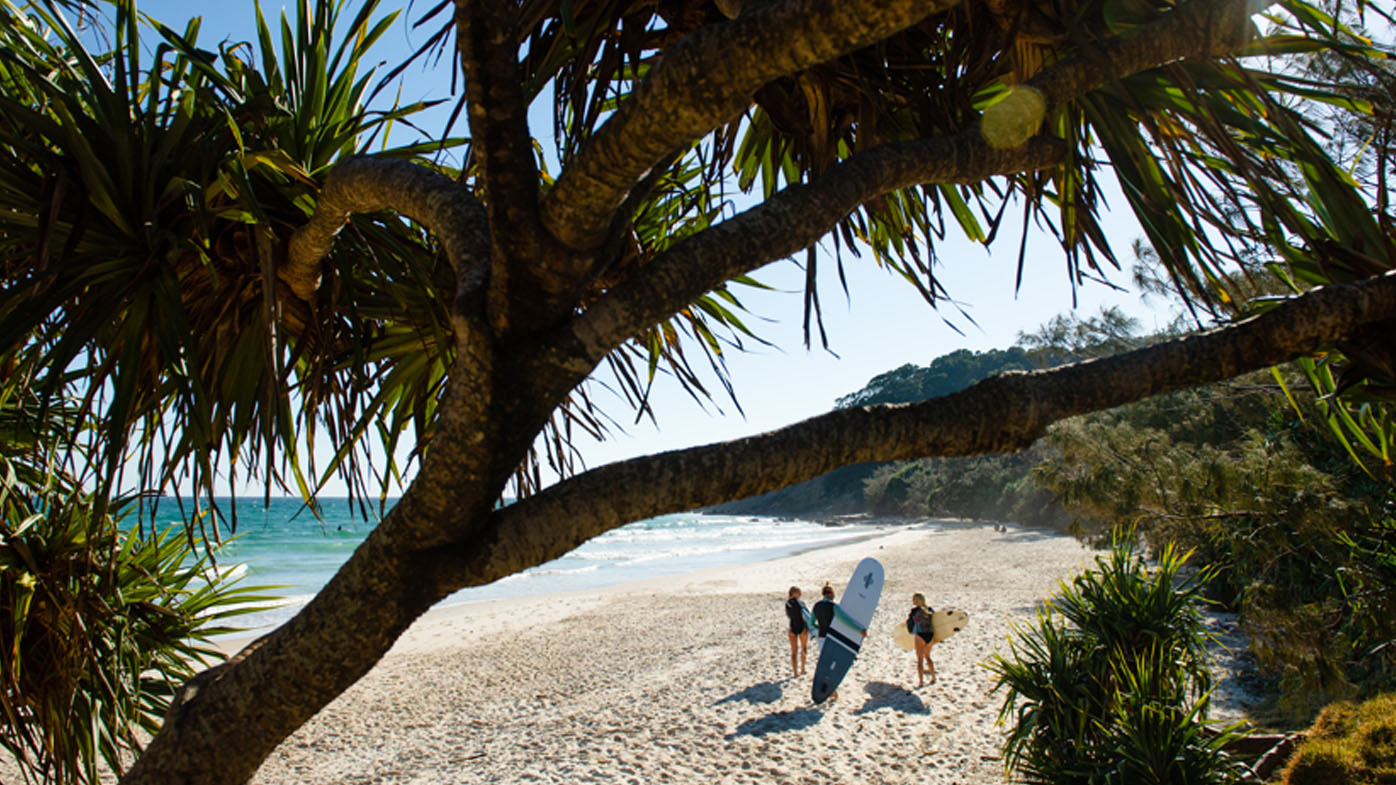
A major change to how visitors spend their time in the holiday hotspot of Byron Bay in New South Wales has come into effect today.
Owners of short-term rental accommodation in large parts of the local government area will only be allowed to lease their properties for 60 days every year.
There are exemptions in areas of Byron Bay and Brunswick Heads – identified by the council as holding high tourism appeal – which do not have a cap, allowing for year-round letting.
READ MORE: Around 80 per cent of Australia to be soaked with rain this week
The decision to introduce a cap was made last year by the council, which has long pushed for action to remedy Byron Bay’s homeless crisis.
With its stunning coastal scenery, Byron has long been a magnet for domestic and international tourists.
But its homelessness rate and housing crisis is one of the worst in Australia.
Supporters of the cap say it is needed to ensure stable, long-term rental accommodation to the rental market for residents in a region that has become a favourite for out-of-town property investors.
They include local MP Tamara Smith who says thousands of homes are listed on platforms, such as Airbnb, because owners can make far more profit from a holiday property than they can from offering an ongoing rental.
In a statement on her website, she says the situation is depriving the rental market of much-needed homes for residents.
“Despite holiday letting being a business, there is virtually no regulation,” Smith said.
“Tourist towns like Byron Bay are hit the hardest – some entire streets have no local residents. Communities are being gutted.”
But others say the cap will have little impact on improving the housing crisis in Byron and risks damaging the local tourism industry.
Head of public policy for Airbnb Australia and New Zealand, Michael Crosby, says similar restrictions in New York failed to improve housing affordability.
“Night caps, both locally and internationally, have not worked to improve housing affordability or supply.
“In New York City where short-term rentals have effectively been banned, hotel prices have soared and rental availability and affordability has not improved.
“Tourism will suffer given guests will have less affordable accommodation options.
“Airbnb guests in the Byron region spent over $200 million in the local community in the 12 months to March 2023 and helped to support 800 local jobs, all the while empowering local hosts to make extra income in the midst of a cost of living crisis.”
The process of enforcing the cap remains unclear, but will basically rely on home owners adhering to the 60-day limit and council staff monitoring every affected property.
Hosted short-term rentals, where the host resides on the premises during the stay, are unaffected by the new guidelines.
FOLLOW US ON WHATSAPP HERE: Stay across all the latest in breaking news, celebrity and sport via our WhatsApp channel. No comments, no algorithm and nobody can see your private details.
links to content on ABC
9News





